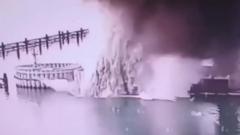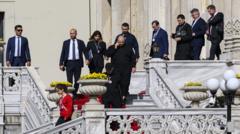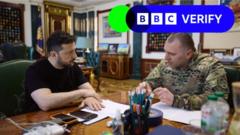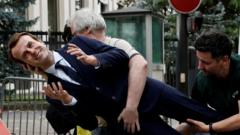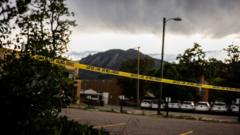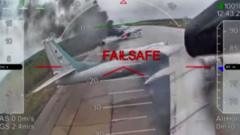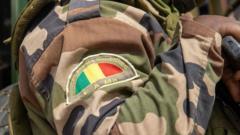**General Carsten Breuer emphasizes the urgency for NATO members to bolster their defenses against an increasingly aggressive Russia, anticipating possible military action by 2029.**
**Nato on High Alert as German Defence Chief Predicts Potential Russian Attack**
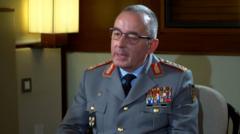
**Nato on High Alert as German Defence Chief Predicts Potential Russian Attack**
**Germany warns of looming Russian threat within the next four years, alerting NATO nations to prepare for potential conflict.**
In a stark warning delivered at the Shangri-La Dialogue in Singapore, Germany’s chief of defense, General Carsten Breuer, stated that NATO should prepare for a potential Russian attack over the next four years. Breuer highlighted that Russia is ramping up production of tanks and military resources, signaling a serious threat to the western alliance, particularly to the Baltic states.
Breuer informed the BBC that Russia’s military is manufacturing an estimated 1,500 main battle tanks annually, with many potentially aimed at Baltic NATO members by 2029. He also noted that Russia produced four million rounds of 152mm artillery ammunition in 2024, indicating a significant buildup of military stockpiles.
Despite differing opinions from Hungary and Slovakia, the general asserted that NATO remains united in its response to the ongoing war in Ukraine. Breuer described the NATO summit in The Hague as an opportunity for member nations to discuss defense budgets and collective security strategies.
Reflecting on his four-decade military career, Breuer expressed that the current threat from Russia is unprecedented. He emphasized the importance of readiness and urged NATO states to enhance their military capabilities amidst concerns over potential vulnerabilities, especially in the Suwalki Gap—a crucial corridor bordered by Lithuania, Poland, Russia, and Belarus.
Drawing an analogy from Estonian perspectives, he likened their proximity to conflict to standing near a wildfire, while Germany perceives it only as distant smoke. This highlights the differing degrees of urgency felt across Europe regarding potential Russian aggression.
Breuer characterized Russia's view of the conflict in Ukraine as part of a broader struggle against NATO, citing cyberattacks and infrastructure threats as manifestations of this ongoing confrontation. He called for NATO members to increase military investments to reinforce deterrence.
Despite the presence of nations like Hungary and Slovakia with closer ties to Moscow, Breuer underscored a renewed unity within NATO, evidenced by Finland and Sweden’s recent accession to the alliance. He observed an unprecedented collective understanding of the looming threat and the necessity for fortifying defenses.
As European nations reassess their military strategies, questions linger regarding the ability to translate political resolve into effective military readiness. With Western military capabilities taking time to augment, the pressing challenge remains to match the pace of Russian military advancement while addressing commitments in other regions, such as the Indo-Pacific.


